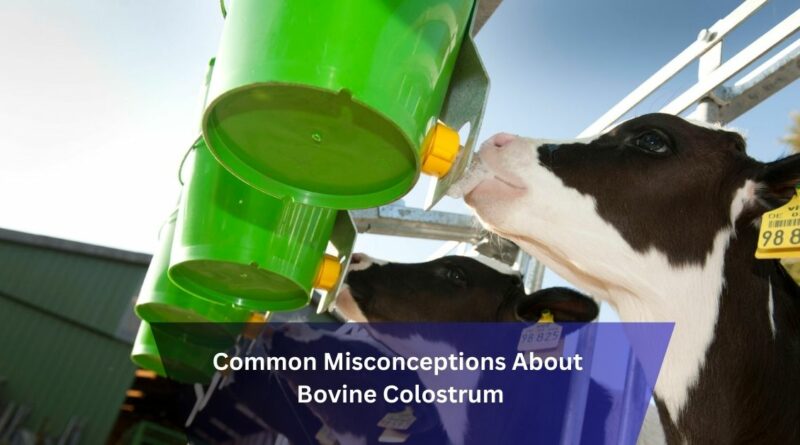Common Misconceptions About Bovine Colostrum
Bovine colostrum is a nutrient-rich milk cows produce during the first few days after giving birth. It is used as a dietary supplement due to its high concentration of antibodies, growth factors, and other beneficial compounds. Known for its immune-boosting properties, colostrum helps calves and humans fight infections and promote health. Here are some common misconceptions about colostrum supplements to clear up any confusion:
Pooling Colostrum From All Fresh Cows Will Improve the Overall Quality
This is a common misconception among dairy farmers and supplement manufacturers. The belief is that pooling colostrum from multiple cows will improve the quality of the supplement. While pooling colostrum may increase the quantity of antibodies and other beneficial compounds, it can also dilute the concentration of these nutrients. Each individual dose may not be as effective as desired due to the variation between cows and their colostrum quality. The concentration of antibodies can also vary between different cows, and pooling may not provide a consistent level of nutrients.
All Colostrum Supplements Are Created Equal
The quality and effectiveness of a colostrum supplement can vary depending on the source and production methods. Some supplements may be heat-treated or processed in a way that reduces the bioavailability of certain nutrients. Choose a reputable brand that uses high-quality, fresh colostrum from healthy cows and has a transparent production process. You may look for cold-processed or freeze-dried supplements to preserve the natural nutrients.
Bovine Supplements Can Replace Vaccines
While colostrum is known for its immune-boosting properties, it should not be viewed as a replacement for vaccines. Vaccines introduce small amounts of weakened or dead viruses or bacteria into the body, which triggers an immune response and builds up immunity. Colostrum supplements may contain antibodies against certain illnesses. Follow recommended vaccination schedules for your animals and provide a colostrum supplement. The combination of both may provide optimal protection against diseases.
The Thicker the Colostrum, the Better
Some people believe that the thicker the colostrum, the better it is for their animals. The concentration of immunoglobins G (IgGs) may not determined by the thickness of the colostrum. Check the label or ask the manufacturer about the IgG levels in their colostrum supplement rather than relying on thickness as an indicator of quality. Evaluate the quality and purity of the colostrum before using it as a supplement for your animals. Undersized calves and larger breeds with weak immune systems may benefit from a thicker colostrum supplement.
All Colostrum Products Are Alike
Different brands may have varying levels of IgGs, and some may contain additional ingredients such as probiotics or growth factors. Choose a supplement specifically for your animals, whether calves, lambs, or foals. Check for any added fillers or preservatives that may not benefit your animals. Look for supplements tested and certified by third-party organizations to enhance quality and purity. Buy bovine colostrum from a reputable source for optimal results.
Colostrum From First Lactation Cattle Should Be Discarded
The quality of colostrum may vary based on the health and nutrition of the mother cow. Colostrum from first-lactation cattle can be as beneficial as colostrum from older cows as long as they are healthy and well-nourished. Pasteurization may also help eliminate potential pathogens from the colostrum, making it safe for consumption. While fresh colostrum is preferred, pasteurized colostrum may provide nutrients and immune support for newborn animals. Bovine colostrum stimulates the growth of beneficial gut bacteria, aiding digestion and health.
Optimizing Immunity Through Bovine Colostrum
Bovine colostrum contains various beneficial components that can support the health and immunity of newborn animals. These include immunoglobulins, growth factors, and lactoferrin. Immunoglobulins, specifically IgGs, help build the immune system and provide passive immunity to newborn animals. Growth factors stimulate tissue growth and repair, while lactoferrin has antimicrobial properties that may help fight against harmful bacteria and viruses.
